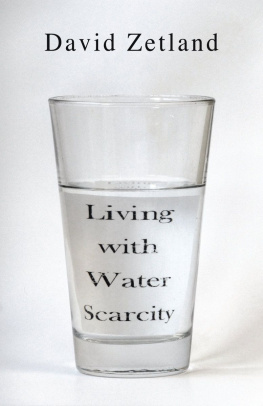Water Diplomacy in Action
ANTHEM WATER DIPLOMACY SERIES
More effective resolution of our increasingly complex, boundary-crossing water problems demands integration of scientific knowledge of water in both natural and human systems along with the politics of real-world problem solving. Water professionals struggle to translate ideas that emerge from science and technology into the messy context of the real world. We need to find more effective ways to bridge the divide between theory and practice and to resolve complex water management problems when natural, societal and political elements cross multiple sectors and interact in unpredictable ways. The Anthem Water Diplomacy Series is a step in that direction. Contributions in this series diagnose water governance and management problems, identify intervention points and possible policy changes, and propose sustainable solutions that are sensitive to diverse viewpoints as well as conflicting values, ambiguities and uncertainties.
Series Editor
Shafiqul Islam Tufts University, USA
Editorial Board
Yaneer Bar-Yam New England Complex Systems Institute, USA
Qingyun Duan Beijing Normal University, China
Peter Gleick Pacific Institute, USA
Jerson Kelman Federal University of Rio de Janeiro, Brazil
Greg Koch Global Water Stewardship, The Coca Cola Company, USA
Dennis Lettenmaier University of Washington, USA
Patricia Mulroy Southern Nevada Water Authority, USA
Ainun Nishat BRAC University, Bangladesh
Stuart Orr WWF International, Switzerland
Salman Salman Fellow, International Water Resources Association (IWRA), France
Poh-Ling Tan Griffith Law School, Australia
Vaughan Turekian American Association for the Advancement of Science, USA
Anthony Turton University of Free State, South Africa
Sergei Vinogradov University of Dundee, UK
Patricia Wouters University of Dundee, UK
Water Diplomacy in Action
Contingent Approaches to Managing
Complex Water Problems
Edited by Shafiqul Islam and Kaveh Madani

Anthem Press
An imprint of Wimbledon Publishing Company
www.anthempress.com
This edition first published in UK and USA 2017
by ANTHEM PRESS
7576 Blackfriars Road, London SE1 8HA, UK
or PO Box 9779, London SW19 7ZG, UK
and
244 Madison Ave #116, New York, NY 10016, USA
2017 Shafiqul Islam and Kaveh Madani editorial matter and selection; individual chapters individual contributors
The moral right of the authors has been asserted.
All rights reserved. Without limiting the rights under copyright reserved above, no part of this publication may be reproduced, stored or introduced into a retrieval system, or transmitted, in any form or by any means (electronic, mechanical, photocopying, recording or otherwise), without the prior written permission of both the copyright owner and the above publisher of this book.
British Library Cataloguing-in-Publication Data
A catalogue record for this book is available from the British Library.
Library of Congress Cataloging-in-Publication Data
Names: Islam, Shafiqul, 1960 editor. | Madani, Kaveh, editor.Title: Water diplomacy in action : contingent approaches to managing complexwater problems / editors, Shafiqul Islam and Kaveh Madani.Description: London, UK; New York, NY: Anthem Press, 2017. | Includes bibliographical references and index.Identifiers: LCCN 2016052841 | ISBN 9781783084906 (hardback : alk. paper)Subjects: LCSH: Water-supplyInternational cooperation. |Water-supplyPolitical aspects. | Water-supplyGovernment policy. |Water-supplyManagement. | Water resources development.Classification: LCC TD345 .W26155 2017 | DDC 333.91dc23LC record available at https://lccn.loc.gov/2016052841
ISBN-13: 978-1-78308-490-6 (Hbk)
ISBN-10: 1-78308-490-1 (Hbk)
ISBN-13: 978-1-78308-493-7 (Pbk)
ISBN-10: 1-78308-493-6 (Pbk)
Cover credits:
Sprout in dried cracked earth
Andrey Emelyanenko / Shutterstock.com, used under license from Shutterstock.com
Sugar beet on agricultural field on beautiful summer day
prudkov / Shutterstock.com, used under license from Shutterstock.com
Barcelona, May 30: Aerial view of a massive crowd at Primavera Sound 2014
Festival (PS14) on May 30, 2014 in Barcelona, Spain
Christian Bertrand / Shutterstock.com, used under license from Shutterstock.com
This title is also available as an e-book.
CONTENTS
Maimuna Majumder
| Shafiqul Islam |
| Benjamin Pohl and Ashok Swain |
| Mahboubeh Zarezadeh, Ali Mirchi, Laura Read and Kaveh Madani |
| Melanie Wong Turlington, Richard de Neufville and Margaret Garcia |
| Arpita Mondal and P. P. Mujumdar |
| Joel A. Carr and Paolo DOdorico |
| Yosif Ibrahim and Shafiqul Islam |
| Dena Marshall, Lna Salam and Aaron T. Wolf |
| Udit Bhatia, Devashish Kumar, Evan Kodra and Auroop R. Ganguly |
| Enamul Choudhury |
| Patrick Huntjens |
| Abdulla AlMisnad, Richard de Neufville and Margaret Garcia |
| Ronny Berndtsson, Kaveh Madani, Karin Aggestam and Dan-Erik Andersson |
| Bhadranie Thoradeniya and Basant Maheshwari |
| Mohammad R. Moazezi, Kaveh Madani and Keith W. Hipel |
Maimuna Majumder
In the early 1970s, the leading cause of childhood mortality in Bangladesh).
The underdeveloped immune systems of children below five years make them particularly susceptible to death from diarrheal disease. To address this issue, the United Nations Childrens Fund (UNICEF) initiated a project in 1972 to build shallow tube wells that tapped into local groundwater aquifers (Smith, Lingas and Rahman ). Such tube wells are not as vulnerable to contamination as are surface water sources, which made them a seemingly ideal solution for the problem at hand.
By 1980, one million tube wells had been installeda number that then grew tenfold in the decade that followed, bringing coverage to nearly the entirety of the Bangladeshi population in the process (Jones et al. ). In fact, they became so intertwined with Bangladeshi cultural practices that many families even began to include them in their daughters dowries. At the time, UNICEF did not know that the same wells that prevented diarrheal disease so effectively in these rural Bangladeshi communities were also the cause of arsenic poisoning.
Shallow tube wells, which draw water from within a depth of 150 meters from the surface, are prone to arsenic contamination from metal deposits in the surrounding soils (Smith, Lingas and Rahman ).
Red Well, Green Well
In 1999, UNICEF initiated a multimillion dollar campaign to screen wells for arsenic and educate communities about the dangers of consuming arsenic-contaminated water (Chappell, Abernathy and Calderon ). Suddenly, one in five families no longer had a safe and reliable source of water at their disposal.
But limited access to clean water was not the only consequence that emerged from the 1999 UNICEF campaign. With the red-rimmed tube wells came tremendous stigmatization, and to this day, individuals with arsenicosis face discrimination both financially and socially (Ahmad et al. ).
Rural Bangladeshi womenwho largely rely on their husbands and fathers for monetary supportsuffer disproportionately (Sultana ). The same wells that had once made it easier for women to wed now leave them with diminished prospects for marriage because of suspected arsenicosis.
The Blind Men and the Elephant


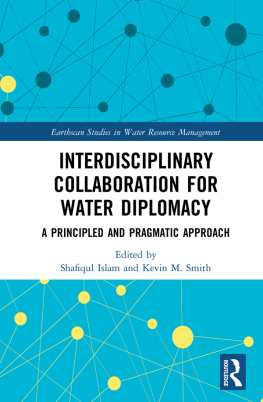
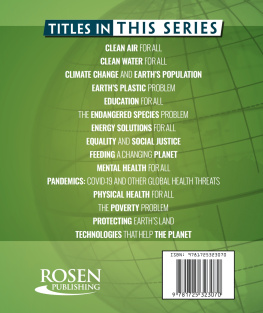
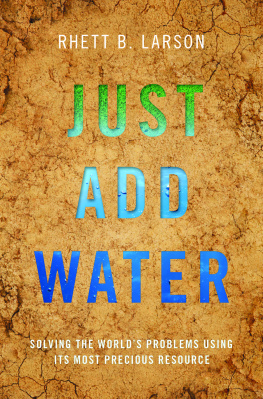
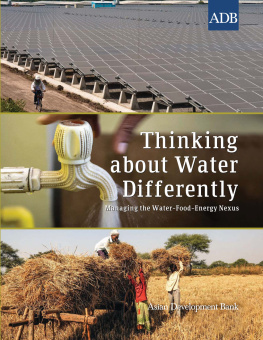
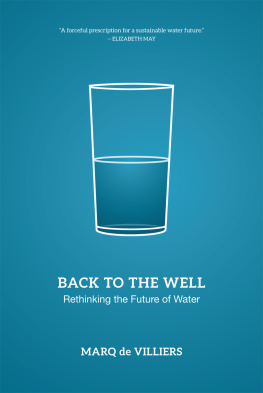
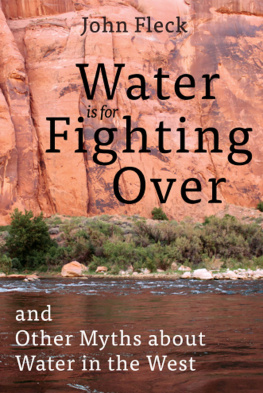
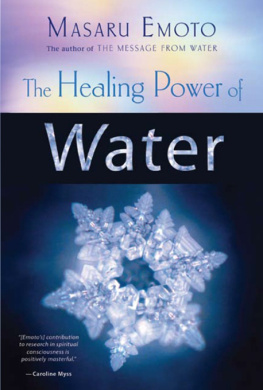
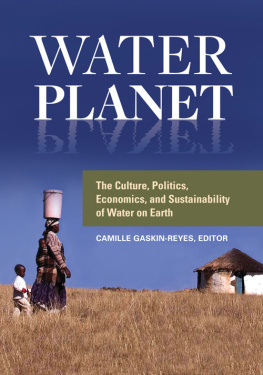
![David E Newton] - The global water crisis : a reference handbook](/uploads/posts/book/104432/thumbs/david-e-newton-the-global-water-crisis-a.jpg)
